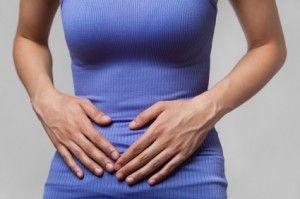
Cystitis is inflammation of the lining of the bladder. It is up to eight times more common in women than men as the urethra (the tube from the bladder that passes out urine) is shorter and opens nearer the back passage (anus).
The symptoms of cystitis are:
 pain, burning or stinging when you urinate.
pain, burning or stinging when you urinate.
 needing to urinate often and urgently but only passing small amounts of urine.
needing to urinate often and urgently but only passing small amounts of urine.
 urine that's dark, cloudy or strong smelling.
urine that's dark, cloudy or strong smelling.
 traces of blood in your urine (haematuria).
traces of blood in your urine (haematuria).
 pain low in your belly (directly above the pubic bone), or in the lower back or abdomen.
pain low in your belly (directly above the pubic bone), or in the lower back or abdomen.
 feeling unwell, weak or feverish.
feeling unwell, weak or feverish.
Causes
The most common cause is bacterial infection. This can happen when bacteria from the anus are transferred to urethra. Bacteria can be transferred by incorrect wiping after going to the toilet as well as during sexual intercourse. It can also occur if you do not empty your bladder fully when you go to the toilet, which can be an issue during pregnancy as the baby can put pressure on the pelvic area and the bladder.
Cystitis can also be caused by damage or irritation in the area around the urethra in both men and women caused by sex, chemical irritants such as perfumed soap, diabetes, catheterization and other bladder or kidney problems e.g. kidney infection.
Treatment
 The symptoms of mild cystitis usually clear up without treatment within a few days.
The symptoms of mild cystitis usually clear up without treatment within a few days.
 Over-the-counter painkillers such as paracetamol and ibuprofen can reduce pain and discomfort as well as lowering a high temperature.
Over-the-counter painkillers such as paracetamol and ibuprofen can reduce pain and discomfort as well as lowering a high temperature.
 Urine alkalising agents such as cranberry juice or products containing sodium bicarbonate or potassium citrate (eg. Cystopurin, Cymalon) may help relieve pain when urinating.
Urine alkalising agents such as cranberry juice or products containing sodium bicarbonate or potassium citrate (eg. Cystopurin, Cymalon) may help relieve pain when urinating.
 There is no evidence that drinking plenty of water is helpful in treating cystitis.
There is no evidence that drinking plenty of water is helpful in treating cystitis.
 If your symptoms are severe, your doctor may prescribe a short course of antibiotics.
If your symptoms are severe, your doctor may prescribe a short course of antibiotics.
 If you suffer from recurrent cystitis, your doctor may prescribe a continuous antibiotic to prevent future episodes.
If you suffer from recurrent cystitis, your doctor may prescribe a continuous antibiotic to prevent future episodes.
totalhealth pharmacist’s advice
 Do not delay when you feel the urge to go to the toilet, and empty your bladder fully when you urinate.
Do not delay when you feel the urge to go to the toilet, and empty your bladder fully when you urinate.
 Always wipe from front to back after going to the toilet.
Always wipe from front to back after going to the toilet.
 Take showers rather than baths.
Take showers rather than baths.
 Empty your bladder as soon as possible after intercourse.
Empty your bladder as soon as possible after intercourse.
 Do not use perfumed products such as soap, talc etc. around your genital area.
Do not use perfumed products such as soap, talc etc. around your genital area.
 Gently wash your anus and genital area once a day with unperfumed soap and water.
Gently wash your anus and genital area once a day with unperfumed soap and water.
 Wear cotton underwear and change it daily.
Wear cotton underwear and change it daily.
 Avoid wearing tight jeans and trousers.
Avoid wearing tight jeans and trousers.
 Drink plenty of water. Although there is no evidence to show drinking water can help to treat cystitis, it is good for our general health to drink approx. 2L of water a day.
Drink plenty of water. Although there is no evidence to show drinking water can help to treat cystitis, it is good for our general health to drink approx. 2L of water a day.
 Cranberry extracts e.g. juice, capsules do not treat cystitis, however, they may help to prevent recurrent attacks. It is important not to take cranberry products if you have been prescribed the blood thinner warfarin.
Cranberry extracts e.g. juice, capsules do not treat cystitis, however, they may help to prevent recurrent attacks. It is important not to take cranberry products if you have been prescribed the blood thinner warfarin.